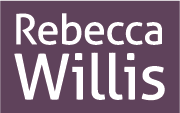Last week I saw a sea eagle fighting off a buzzard, and a sea otter eating a fish. I stared at a seal, and it stared back defiantly before flipping and disappearing below the surface with a showy splash. I got in the way of a puffin delivering sand eels to its pufflings, and swam through forests of kelp. I stayed up late drinking whisky and putting the world to rights. And it was all in the name of work.
I swapped my office for a sea kayak, and four days on the seas off the island of Mull, in the company of ‘outdoor philosopher’ Kate Rawles. A few years ago, Kate was an indoor philosopher, teaching environmental ethics to Lancaster students. But as she thought about the relationship between people and nature, she realised that a crowded lecture theatre was not the right place to do that thinking. And so Outdoor Philosophy was born.
The concept is quietly revolutionary. Take people out of the human world, into the natural world. Let them get a little bit scared as the first waves hit the side of their boat, and a little bit drowsy as the sun hits their small island lunch spot. And then get them to think about the environment.
We’re all anaesthetised by the world of email, laptops, meetings and offices. So it’s no wonder that we’re stuck in a rut when it comes to thinking, too. Getting out there, getting wet, getting closer to animals, birds and, yes, even midges, shook up my way of looking at my world of work.
It’s strange, then, that it’s still so rare to do this. Over recent years, there has been an upsurge in outdoor learning for children – with campaigns like RSPB’s Every Child Outdoors and the National Trust’s Fifty Things To Do Before You’re 11. We’ve even coined a neat phrase – ‘nature deficit disorder’ – to describe the damage caused by hanging about indoors too much. And yet we’ve neglected the adults, who are, after all, the ones with the influence – at least for now.
I’d like to prescribe an outdoor philosophy course to any politician who’s making decisions about environmental taxation. To any business leader who is trying to work out whether or how their company can improve their environmental performance. And to jaded environmental campaigners, who, no matter how hard they try, start speaking the language of the system they’re trying to change.
As I write this, I’m on the train to London again, to launch the report that I’ve put together, with MPs from Green Alliance’s climate leadership programme. I’ll be in a crowded committee room in the House of Commons this evening, but I’m sure my thoughts will turn to that seal who stared me out, or the crab who scuttled behind a rock as I swam his way. I’ll see if I can mention pufflings in my summing-up. And I’ll tell everyone I meet how incredible – and how fragile – life looks across the deck of a kayak.
